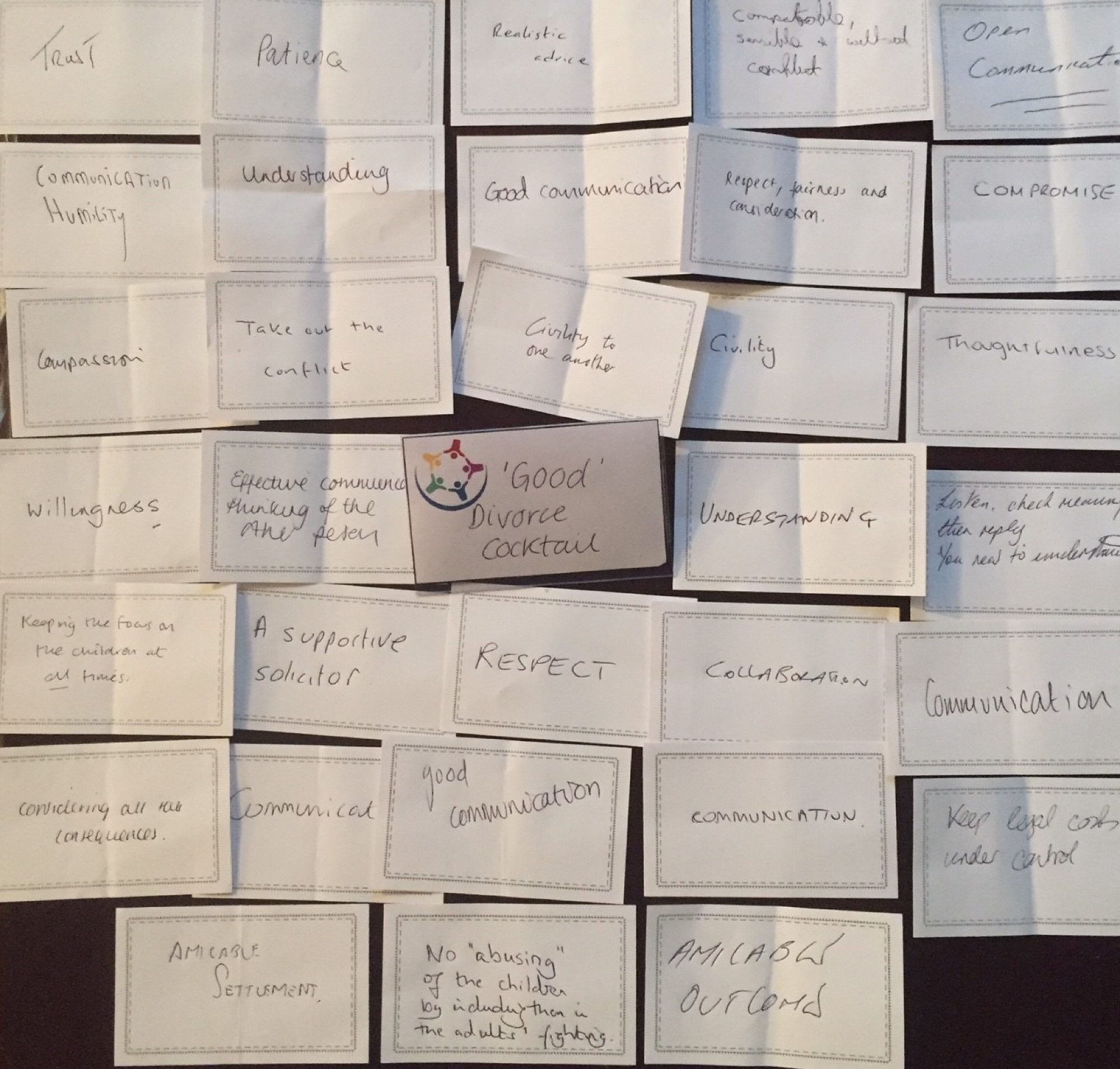You and your partner have decided that the collaborative process is for you. What can you expect to happen next?
- You will meet individually with your lawyers to talk about what to expect in the collaborative meetings – usually referred to as ‘four way’ meetings as they are meetings between you and your partner and your respective lawyers.
- You and your lawyer will discuss what you both need to do in order to prepare for the first ‘four way’ meeting, as will your partner and your partner’s lawyer.
The 1st Four Way Meeting:
- At the first four way meeting the lawyers will make sure that you both understand that you are making a commitment to working out an agreement without going to court and you will all four sign an agreement to this effect.
- You and your partner will be invited to share your own objectives in choosing this process and you will all plan the process. This will depend on your own individual circumstances but might typically include a discussion about how the children are responding to the separation.
- If time permits you may also go on to discuss how financial information will be shared and agree on who will bring what financial information to the next meeting.
Subsequent meetings:
These will deal with you and your partner’s particular priorities and concerns.
You might, for instance, look at involving other professionals such as specialists in pensions and financial planning or people trained to assist children in understanding and coping with the changes that your divorce or separation will bring to their lives. The meetings will enable you to reach agreement on how the finances will be shared or what arrangements need to be made for any children.
The final meeting:
In the final meeting documents detailing the agreements you have reached will be signed and your lawyers will talk you through anything else that needs to be done in order to implement those agreements. Sometimes a firm timetable for implementation will not be possible, for instance, if the family house needs to be sold.
How long does it all take?
One of the benefits of the collaborative process is that it’s not driven by a timetable imposed by the court. So to a large extent the process can be built around your family’s individual timetable and priorities, as these meetings follow agendas set by you and your partner.
Sometimes only a couple of meetings are needed, in other cases four or five. Once an agreement is reached, your lawyers will put it into effect, obtaining a court order where needed.

